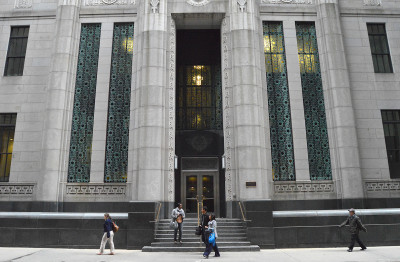
Boston University has been under the United States Department of Education’s investigation for two years and one month for possible violations of Title IX that include allegedly mishandling sexual violence and harassment complaints on campus, according to The Chronicle of Higher Education’s Title IX investigation tracker. BU’s case, opened Dec. 16, 2013, is currently the 25th longest unresolved Title IX investigation, based on data provided by the tracker.
BU Dean of Students Kenneth Elmore said the investigation ultimately has a positive influence on the BU community, as it has increased campus-wide awareness on sexual misconduct, and now the university openly welcomes conversations on the issue.
“Throughout all aspects of the university, we are being proactive to improve on the topics such as how to treat women and how to respect each other,” Elmore said.
According to information provided by The Chronicle, the investigation was triggered by a complaint filed in October 2013.
Although university officials are not allowed to discuss details on any specific case due to federal privacy laws, the university is complying fully with the investigation, BU spokesman Colin Riley wrote in an email.
“The U.S. Department of Education’s assistant secretary for civil rights made it clear in 2014 that ‘being the subject of a Title IX investigation in no way indicates at this stage that the college or university is violating or has violated the law,’” Riley said.
Further information on details of the 2013 investigation can only be provided by the U.S. Department of Education, Elmore said.
Following the opening of the 2013 investigation, BU was mentioned by the Department of Education on May 1, 2014 as one of the 55 initial colleges with open Title IX sexual violence investigations. BU updated their Title IX policy to better address sexual assault, The Daily Free Press reported on Feb. 16, 2015.
The U.S. Department of Education’s Office of Civil Rights held open office hours on Apr. 23, 2015 for BU to aid in the department’s Title IX investigation, The Daily Free Press reported.
Out of 244 Title IX investigations, 197 cases are still open, which involves 161 institutions that are under investigation, the tracker showed. The average duration for cases to resolve is one year and two months, according to the Chronicle’s Title IX Investigation Tracker.
Title IX of the Education Amendments of 1972 prohibits discrimination on the basis of sex at all educational institutions that receive federal financial assistance, according to the U.S. Department of Justice website. If any institution is found in violation, that entity could potentially lose federal funding for programs such as federal financial aid, the website stated.
Several students said the university has shown efforts in addressing sexual assault and combating stigma, but they would like to see promising results from these attempts.
MacKenzie Mitchell, a first-year graduate student in the School of Medicine, said she is glad the university is making an effort to spread awareness about the issue.
“The university is trying,” Mitchell said. “I just started BU two days ago, but they talked about sexual assault prevention in orientation. There are classes you can take, and we have [Sexual Assault Response and Prevention Center] people coming in and [talking] about the issue.”
Mitchell added that steps still need to be taken to make victims of sexual assault feel more comfortable seeking support.
“It is really important to destigmatize the survivor,” she said. “The university should make it a safer environment for survivors to come forward and get help.”
Fiona Moran, a junior in the College of Engineering, said she agreed that BU should take further action to ensure that incoming students understand the magnitude of sexual assault.
“The university should publicize the issue,” Moran said. “For a lot of people, when they first come in, they don’t understand what is not okay, what should and shouldn’t be reported. So a lot of the pressures are put on girls in terms of what to do.”
Timothy Farrell, a second-year graduate student in the Graduate School of Arts and Sciences and College of Engineering, said sexual assault is not an issue that is only affecting the BU community, because sexual assault is a prevalent problem throughout the United States.
“There is a national trend of sexual assault issues,” said Farrell. “The issues are deeper than what one university is doing. It is a society problem, a social problem. It is not a problem that only exists in academic environment. The military also face[s] the same issue. Whatever BU has done, whether its effort is reputable or not, sexual assault is a general issue.”





This is bad news–DoE is very fond of intrusive mandates. Watch out!